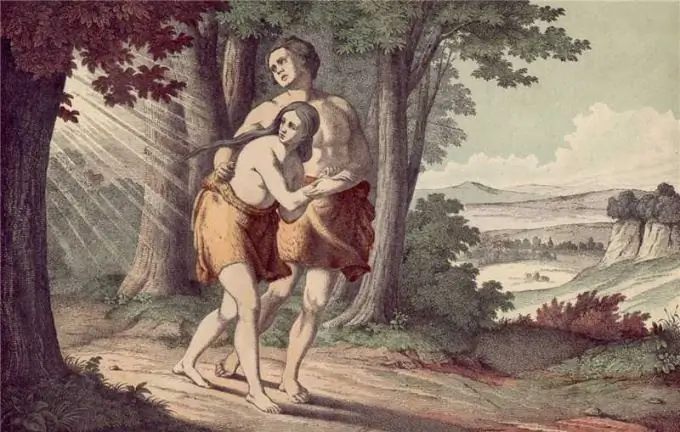- Author Antonio Harrison [email protected].
- Public 2023-12-16 07:44.
- Last modified 2025-01-22 21:44.
A special place in the Holy Scriptures of the Old Testament is occupied by an event that turned the course of the development of human history. Many have heard about the fall of the first people and their expulsion from paradise. Some prominent artists even addressed this topic in their works, capturing this moment on canvases that have become the immortal masterpieces of world painting.

The Fall in Orthodoxy refers to the act of a person committing the first sin. The Bible describes this as eating the forbidden fruit from the tree of the knowledge of good and evil, after which the expulsion of people from paradise took place.
The essence of sin was the choice of man to disobey the only commandment of God. The latter was given so that a person, by his free choice, constantly improves in goodness (life according to the commandment of God). The Bible says that after eating the forbidden fruit, people were able to distinguish between good and evil. It is at this time that evil enters human life, and the Fall changes the nature of people. Thus, in Christians, evil is understood as the free choice of the will of personal beings in an effort to violate Divine law. Having entered the world once, sin (evil) penetrates into human nature, changing it radically.
Thus, human nature becomes prone to sin. She loses her original holiness and grace. Sin becomes no longer just a violation of the law, but a disease of human nature that needs treatment. At a natural level, a person develops a desire and craving for sin. That is why Christ comes into the world to save man and give people the opportunity to cleanse their souls from sin. However, the very nature of humans remains damaged. According to the teachings of Orthodox Christianity, an inapplicable consequence of the damage to human nature is physical death. It turns out that death was unnatural for a person who was created "neither necessary for mortals, nor necessary for immortals" (quoted by Priest Oleg Davydenkov "Dogmatic Theology"). People were predisposed to both, depending on the choice of their free will.
Thus, the main consequences of the Fall for human nature were a change in the nature of people, the entry into human life of death and a predisposition on the spiritual level to sin.






